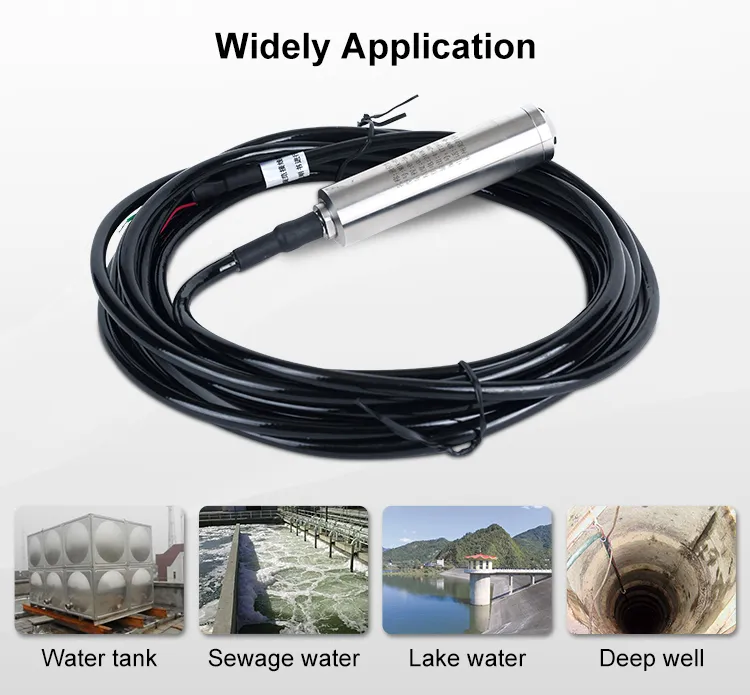For Water level measuring instrument liquid level sensor,in many fields such as industrial production, water monitoring, and environmental engineering, accurately grasping water level changes is the key to ensuring stable system operation and preventing disaster risks.
As the core instrument for water level measurement, liquid level sensors are playing an irreplaceable role. It is a device that can convert liquid level height into measurable signals such as electrical and optical signals.

With diverse technical principles and excellent performance, it provides reliable water level data support for various industries.
The working principle of liquid level sensors is based on different physical phenomena, from which various types are derived.
Pressure type liquid level sensors convert liquid pressure into electrical signals through pressure sensitive components based on the relationship between liquid static pressure and liquid level height, and then calculate the liquid level height. They are commonly used for monitoring the liquid level in sewage treatment plants;
liquid level sensor of Ultrasonic level sensors
Ultrasonic level sensors use the propagation speed and reflection principle of ultrasonic waves in the air to emit ultrasonic waves to the liquid surface, and calculate the liquid level by measuring the time difference between emission and reception. They are suitable for non-contact measurement of corrosive and high viscosity liquids;
liquid level sensor of Radar level sensors
Radar level sensors rely on the emission of high-frequency electromagnetic waves. When the electromagnetic waves are reflected back from the liquid surface, the liquid level is determined based on the time difference between transmission and reception.
As its measurement is not affected by factors such as medium density, temperature, and humidity, it is widely used in monitoring the liquid level of petrochemical storage tanks.
liquid level sensor of liquid level sensors
These different types of liquid level sensors, with their respective advantages, have demonstrated strong application value in numerous fields. In industrial production, chemical enterprises use liquid level sensors to monitor the liquid level in reaction vessels and storage tanks in real time, ensuring the safe and efficient production process and avoiding accidents such as leaks and explosions caused by abnormal liquid levels;
The food and beverage industry uses liquid level sensors to accurately control the filling liquid level, improving product quality and production efficiency.
In terms of water monitoring, liquid level sensors are deployed in rivers, reservoirs and other water bodies to obtain real-time water level data, providing accurate basis for flood warning and water resource scheduling, and assisting in flood prevention and disaster reduction work;
The urban water supply system uses liquid level sensors to monitor the water level of reservoirs and water towers, ensuring stable water supply for residents.
In addition, in the field of environmental protection, liquid level sensors can be used to monitor the liquid level of sewage treatment tanks and leachate collection tanks in landfills, detect abnormalities in a timely manner, and prevent pollutant leakage from causing damage to the environment.
With the continuous advancement of technology, liquid level sensors are also constantly developing and innovating. Intelligence has become an important trend, with sensors equipped with built-in microprocessors that have functions such as automatic calibration, fault diagnosis, and data processing.
This enables seamless integration with IoT systems and remote monitoring and data analysis through cloud platforms, improving management efficiency;
High precision further improves measurement accuracy and meets the more stringent requirements for water level changes in various scenarios;
Meanwhile, the miniaturization and low-power design enable the liquid level sensor to adapt to more complex environments and special application scenarios, such as use in narrow spaces or unmanned stations in the wild.
As an important instrument for water level measurement, liquid level sensors provide strong support for the stable operation and development of various industries with their diverse types, wide application scenarios, and constantly innovative technologies.
In the future, with continuous technological breakthroughs, liquid level sensors will play a greater role in more fields, contributing to the realization of intelligent and accurate water level monitoring and management.
